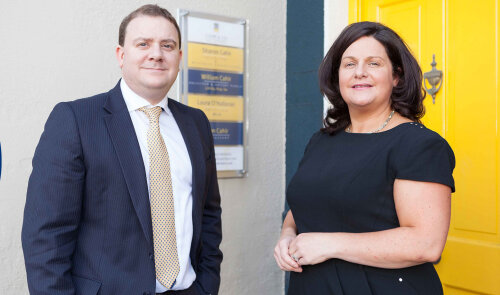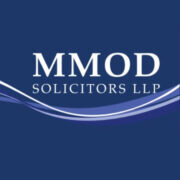Best Accidents & Injuries Lawyers in Ennis
Share your needs with us, get contacted by law firms.
Free. Takes 2 min.
List of the best lawyers in Ennis, Ireland
About Accidents & Injuries Law in Ennis, Ireland
Accidents and injuries law in Ennis, Ireland covers legal claims arising from physical harm caused by another party or an unsafe environment. Common types of claims include road traffic collisions, workplace injuries, slips and trips on public or private premises, sporting injuries, product defects, and clinical negligence. Claims may seek compensation for pain and suffering, loss of earnings, medical and rehabilitation costs, and future care needs. The legal framework combines statute law, common law negligence principles, and administrative procedures designed to encourage early settlement where appropriate.
Why You May Need a Lawyer
You may need a lawyer after an accident for many reasons. A solicitor can identify who is legally responsible, gather and preserve evidence, obtain medical and expert reports, assess the value of your claim, deal with insurers, advise about the Injuries Board process, and represent you in court if necessary. Legal help is especially important where liability is disputed, where injuries are serious or complex, where future care or loss of earnings must be estimated, or where statutory deadlines and procedural rules must be met. A lawyer also protects your position when insurers make early settlement offers that may not fully cover future needs.
Local Laws Overview
Key legal and administrative points relevant in Ennis and the rest of Ireland include the following.
Time limits - Most personal injury claims must be begun within two years of the date of injury or the date the injured person became aware of the injury. There are special rules for children and people lacking capacity.
Negligence - Claims are typically based on negligence. To succeed, a claimant must show that another party owed a duty of care, breached that duty, and caused the injury and loss in a reasonably foreseeable way.
Injuries Board - Before issuing court proceedings in most personal injury cases, claimants must notify the Injuries Board for an assessment. The Injuries Board provides an independent assessment and encourages settlement without court action.
Workplace safety - Employers have statutory duties under the Safety, Health and Welfare at Work Act 2005 to provide a safe system of work. Workplace accidents may give rise to employer liability claims and to regulatory enforcement by the Health and Safety Authority.
Occupiers and product liability - Property owners owe duties under occupiers liability legislation to lawful visitors. Separate product liability laws hold manufacturers and suppliers strictly liable for injuries caused by defective products in many circumstances.
Road traffic - Road traffic legislation requires motorists to have insurance. After a collision you should report injuries and obtain a Garda report if appropriate. Claims involving uninsured or untraced drivers are handled under established industry procedures including recovery schemes maintained by motor insurers.
Damages and costs - Compensation can include general damages for pain and suffering and special damages for financial loss. Legal costs are regulated and often subject to agreement between client and solicitor. Successful claimants may recover some costs from the other side, but most cases settle before court.
Frequently Asked Questions
How long do I have to bring a personal injury claim?
In most cases you must start a claim within two years from the date of the injury or from the date you became aware of it. There are exceptions, for example where the injured person is a child - the two year period generally starts when the child turns 18 - or where the person lacks capacity. Because of these time limits and the need to collect evidence, you should seek advice early.
Do I have to notify the Injuries Board before going to court?
Yes. For many personal injury claims you must first make a notification and application to the Injuries Board. The Injuries Board assesses claims and makes a recommendation on compensation. Parties then have an opportunity to accept the assessment. If either side rejects the assessment, court proceedings may follow. There are limited exceptions, so check with a solicitor promptly about whether notification is required for your case.
Do I need a solicitor to make a claim?
You can start a claim without a solicitor, but legal advice is recommended. A solicitor can ensure your claim is properly framed, collect essential evidence, obtain medical and expert reports, advise on the Injuries Board process and likely compensation, and handle negotiations with insurers. Complex cases and those involving disputes about liability or serious injuries almost always benefit from specialist legal representation.
How will I pay for a solicitor - are there no-win, no-fee options?
Fee arrangements vary. Many personal injury solicitors offer conditional fee agreements, commonly described as no-win, no-fee arrangements. These agreements should be in writing and explain what happens if you win or lose, including any fees, success fees, and how costs and disbursements are handled. Legal aid for personal injury claims is limited, so confirm funding and costs with any solicitor before instructing them.
How is compensation calculated?
Compensation typically has two parts. General damages compensate for pain, suffering and loss of amenity. Special damages cover financial losses such as medical expenses, travel costs, loss of earnings, and costs of future care or rehabilitation. The value of a claim depends on the nature and severity of injuries, medical evidence, impact on work and daily life, and comparable awards in previous cases. A solicitor and medical experts will help quantify losses.
What should I do immediately after an accident?
Get medical attention first. Record the circumstances - dates, times, location, and contact details of witnesses and other parties. Take photos of injuries, vehicles, and the accident scene if safe to do so. Report the incident to your employer if it happened at work and to the Garda if appropriate. Keep receipts for expenses. Do not admit liability or sign documents from insurers without legal advice. Contact a solicitor early to protect your rights and preserve evidence.
Can I claim if I was partly at fault?
Yes. The law recognises contributory negligence. If you were partly to blame, any award of damages may be reduced to reflect your share of responsibility. The reduction is proportionate to the level of fault found by agreement or by a court. A solicitor can advise on how contributory negligence might affect your case and negotiate accordingly.
What if my injury happened at work?
If an injury occurred at work, your employer may be liable if they breached their duty of care under workplace safety laws. You should report the incident to your employer, seek medical treatment, and preserve any evidence. Employers must hold employer liability insurance, and claims often involve insurer investigations. You may also have statutory entitlements or entitlements under employer accident benefit schemes, so discuss the full picture with a solicitor.
What happens if the other driver is uninsured or the driver cannot be identified?
Claims against uninsured or untraced drivers are handled differently. You may be able to recover compensation through schemes operated by the motor insurance industry or through the Motor Insurers Bureau of Ireland equivalent arrangements. These cases can be more complex and may involve additional proof or delay, so seek specialist advice early.
How long does a claim usually take from start to finish?
Timelines vary widely. Many cases are resolved through the Injuries Board process or settlement within several months to a couple of years. Claims that proceed to court or involve complex medical or liability issues can take longer. The seriousness of the injuries, the need for expert evidence, and whether parties engage in settlement discussions all affect duration. Your solicitor should provide a realistic estimate based on the facts of your case.
Additional Resources
Injuries Board - the statutory body responsible for assessment of personal injury claims and early resolution. Citizens Information - provides clear information on rights, procedure, and entitlements. Health and Safety Authority - oversees workplace safety and enforces health and safety law. Garda Siochana - local police who investigate road traffic incidents and criminal matters arising from accidents. Motor insurers and industry recovery schemes - assist with claims involving uninsured or untraced drivers. Legal Aid Board - provides information and some support for civil legal matters, though scope for personal injury funding is limited. Local hospitals and general practitioners - for medical treatment and reports that will support a claim. Local solicitors who specialise in personal injury and clinical negligence - for specialist legal advice and representation. Clare County Council - for matters involving public property or local authority liability.
Next Steps
If you have been injured, prioritise your health and safety first - seek medical treatment and follow medical advice. Record what happened, preserve evidence, and report the incident to relevant authorities or your employer where appropriate. Contact a solicitor experienced in personal injury law to discuss your case and confirm time limits and procedural requirements such as Injuries Board notification. Avoid admitting liability or signing settlement documents without legal advice. Keep copies of all medical records, receipts for expenses, correspondence with insurers, and witness details. Early legal advice will protect your rights and help you achieve the best possible outcome.
Lawzana helps you find the best lawyers and law firms in Ennis through a curated and pre-screened list of qualified legal professionals. Our platform offers rankings and detailed profiles of attorneys and law firms, allowing you to compare based on practice areas, including Accidents & Injuries, experience, and client feedback.
Each profile includes a description of the firm's areas of practice, client reviews, team members and partners, year of establishment, spoken languages, office locations, contact information, social media presence, and any published articles or resources. Most firms on our platform speak English and are experienced in both local and international legal matters.
Get a quote from top-rated law firms in Ennis, Ireland — quickly, securely, and without unnecessary hassle.
Disclaimer:
The information provided on this page is for general informational purposes only and does not constitute legal advice. While we strive to ensure the accuracy and relevance of the content, legal information may change over time, and interpretations of the law can vary. You should always consult with a qualified legal professional for advice specific to your situation.
We disclaim all liability for actions taken or not taken based on the content of this page. If you believe any information is incorrect or outdated, please contact us, and we will review and update it where appropriate.
Browse accidents & injuries law firms by service in Ennis, Ireland
Ennis, Ireland Attorneys in related practice areas.











